Description
ABSTRACT
The Robots Are Here: Gloomy Picture on Personal Income Tax for Nigerian States?
Christopher Okafor*
There is a phenomenon which some have described as the fourth industrial revolution. It is in the form of automation, which is manifested in the production of robots that can execute the same tasks as human beings. The problem with automation is that as they are immensely adopted, they equally displace human workers. Though there is a debate that robots will entirely replace human workers, much of the debate is founded on extrapolations with little or no hard evidence to support them. However, what is disturbing about this debate is the projected revenue shortfall that will ensue if and when robots take over human jobs. To this end, another debate has cropped up on whether to tax robots to make up the projected shortfall. Every side of the debate does have points worthy of evaluation. This work evaluates some of the arguments but could not help but agree that the danger of loss of jobs is real, while the second-order effects of the projected shortfall in revenue collection from labour taxes are equally real. The work agrees with the point that robots need to be taxed. Not just robots that take over human jobs but all robots that can execute jobs human beings can execute.
Keywords: Robots, Robot tax, Payroll tax and Personal income tax
INTRODUCTION
Years back, human beings were the core of the workforce in industries and other human endeavours. Today, however, the tone of the ballad has changed. The world is on the cusp of a technological revolution. The technological revolution manifests in the greater possibility of substituting human labour with robotic labour.1 The development of AI/Robot/Automation within the praxis of the technological revolution has thrown up machines/software programs that can do the same work humans do with greater efficiency and precision, leading to higher productivity.2 As good as this sounds within the ambit of efficiency and precision, there is a hook. As humans give way to robots, as productivity increases with the supporting efficiency, there will likely be a consequence. The first consequence of the robotic takeover of jobs is the loss of jobs by humans, leading to a high unemployment rate.3 The second order effect is that the governments’ revenues take the hit on the canvass of loss of personal income tax and payroll taxes that accrue from labour.
*LL.B (ABSU), LL.M (Rivers State University) LL.M Tax Law (York University Toronto Canada).
- R Abbott, & B Bogenschneider, ‘Should Robots Pay Taxes? Tax Policy in the Age of Automation’ (2018) SSRN Electronic Journal 1659 (1963).
- M Huettinger, & JABoyd, ‘Taxation of robots – what would have been the view of Smith and Marx on it?’ (2019) 47(1) International Journal of Social Economics 41–53.
- Thuemmel U, ‘Optimal Taxation of Robots’ (2018) CESifo Working Paper Series, October. United Na t i o n s. ( 2 0 1 7 ). Robots, Industrialisation And Inclusive Growth. 37–66.

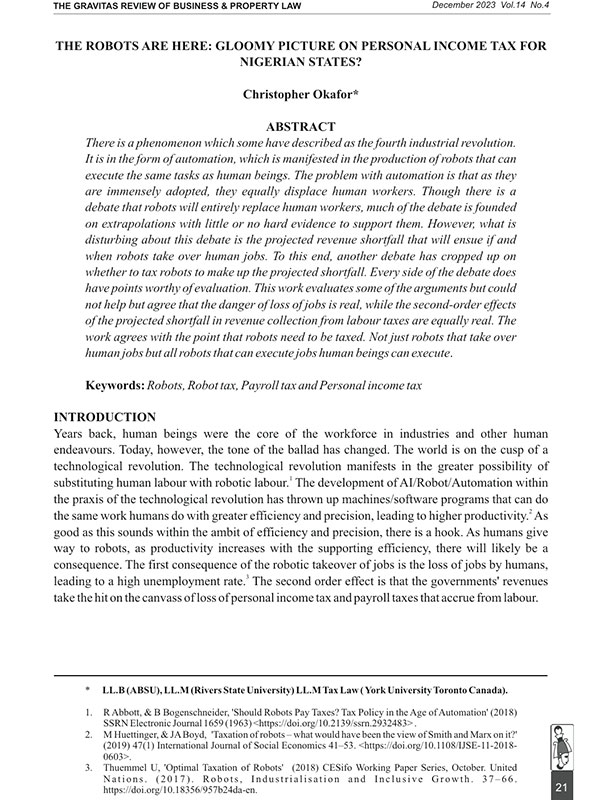
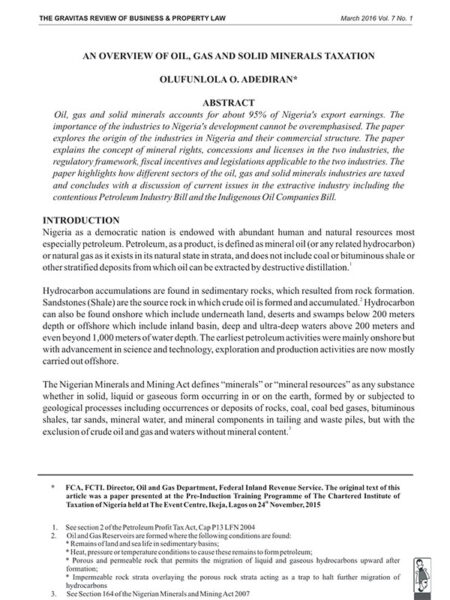
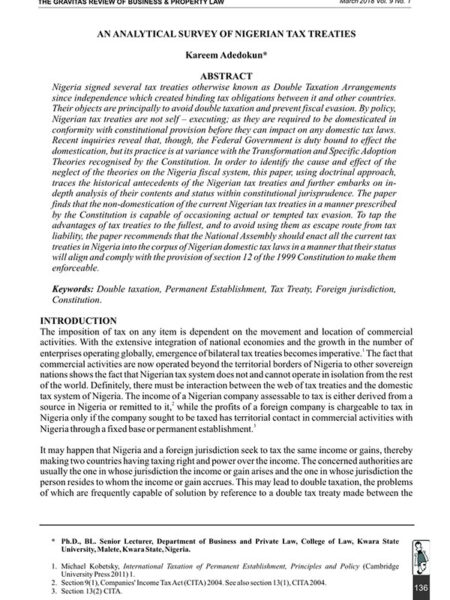
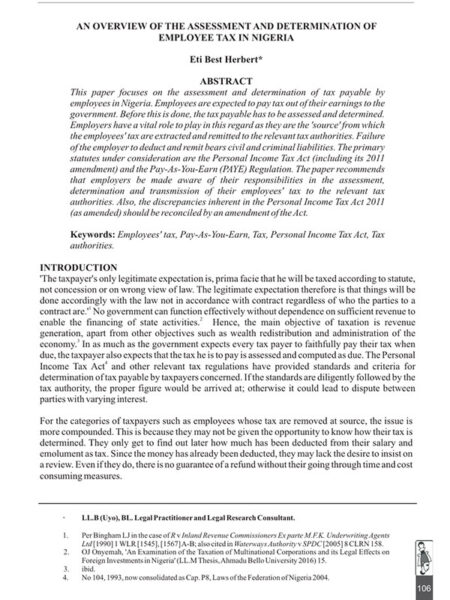
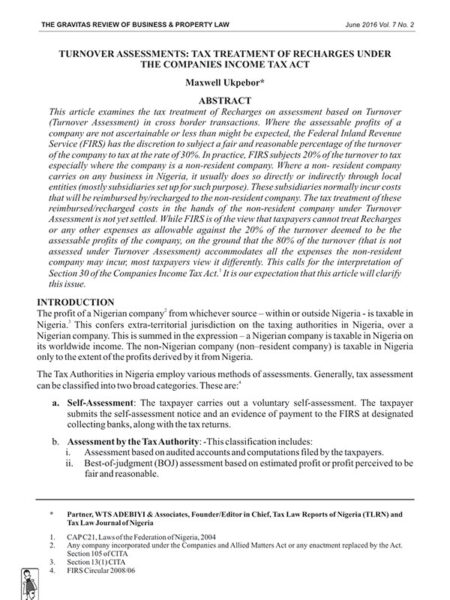


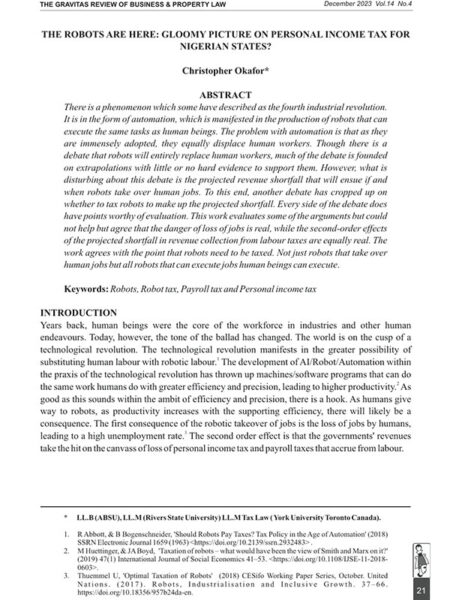
Reviews
There are no reviews yet.